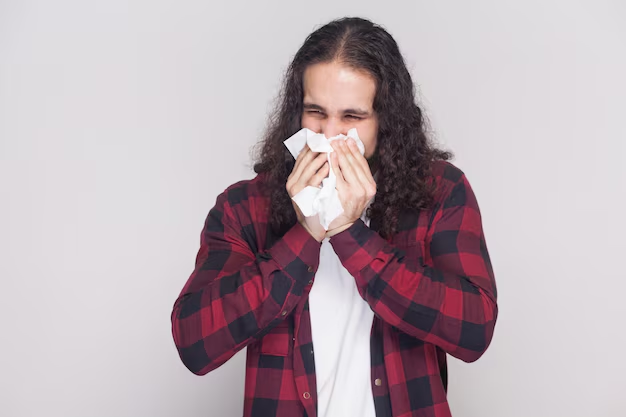Understanding Pneumonia: Risks, Causes, and Prevention
Every year, millions of people are affected by pneumonia, a serious infection that inflames the air sacs in one or both lungs. For those interested in understanding how one might develop such an illness, it's crucial to dive into the myriad factors involved. While nobody wants to fall ill, knowing the risk factors and pathways to developing pneumonia can empower you to protect yourself and others. Let’s embark on an insightful journey into understanding how pneumonia develops, its causes, symptoms, and more importantly, preventive measures.
What Is Pneumonia?
Pneumonia is an infection characterized by the accumulation of pus or fluid in the alveoli, the tiny air sacs in the lungs. This condition can vary from mild to life-threatening, posing significant health risks, especially to infants, the elderly, and people with compromised immune systems. Pneumonia may be caused by bacteria, viruses, or fungi, with varying degrees of severity and treatment protocols.
Causes and Transmission of Pneumonia
Bacterial Pneumonia
The most common culprit of bacterial pneumonia is Streptococcus pneumoniae. This type of pneumonia is more likely to occur when your immune system is weakened. A simple cold or the flu can lower your defenses, making it easier for bacteria to enter the lungs and multiply.
Viral Pneumonia
Viral pneumonia often arises from respiratory viruses, such as the influenza virus, respiratory syncytial virus (RSV), or, more recently, the SARS-CoV-2 virus responsible for COVID-19. Viral infections predispose individuals to secondary bacterial pneumonias, where the initial viral infection creates an environment in the lungs favorable for bacteria to grow.
Fungal Pneumonia
More rare and typically affecting those with weakened immune systems, fungal pneumonia is caused by specific fungi found in soil or bird droppings. Histoplasmosis, coccidioidomycosis, and cryptococcosis are examples of fungal infections that can lead to pneumonia.
How Is Pneumonia Spread?
Pneumonia is often transmitted through airborne droplets from coughs or sneezes of an infected person. Direct contact with infected surfaces or individuals can also facilitate transmission. Poor hygiene, crowded living conditions, and exposure to smoke or pollutants increase vulnerability to infection.
Symptoms to Watch For
Pneumonia symptoms can range from mild to severe and often mimic the flu or a cold. Being aware of these symptoms can prompt timely medical consultation.
- Cough: Often productive, producing phlegm or pus.
- Fever: Elevated body temperature often accompanied by chills.
- Shortness of Breath: Difficulty in breathing often aggravated by physical exertion.
- Chest Pain: Typically worsens during breathing or coughing.
- Fatigue: Persistent and unexplained tiredness.
- Nausea or Vomiting: Sometimes seen in younger patients.
In elderly individuals, confusion or lower body temperature can sometimes be the only external symptoms.
Risk Factors
Understanding who is at higher risk for developing pneumonia can guide preventive strategies.
Age
- Infants under 2 years and older adults over 65 years are most at risk due to their weaker immune systems.
Health Status
- Chronic illnesses: Diabetes, COPD, or heart disease increase susceptibility.
- Weakened immune systems: Conditions such as HIV/AIDS, cancer treatments, or long-term use of steroids can impair immune response.
- Recent surgery or prolonged bed rest can also be contributing factors.
Lifestyle and Environment
- Smoking: Damages lungs, reducing the effectiveness of defenses against infections.
- Exposure to pollutants: Regular exposure to air pollution or chemical fumes can aggravate lung vulnerability.
- Living conditions: Close proximity to others in settings like nursing homes or dormitories can heighten risk.
Practical Steps to Prevent Pneumonia
Vaccinations ⚕️
- Pneumococcal vaccines: Recommended for children under 2, adults over 65, and for individuals with certain health conditions.
- Seasonal flu vaccines: Since flu can lead to pneumonia, annual flu shots are a preventative measure.
- COVID-19 vaccines: Help reduce the risk of severe pneumonia due to the coronavirus.
Hygiene and Lifestyle Choices
- Hand hygiene: Regular handwashing with soap and water is effective in reducing transmission.
- Healthy lifestyle: Balanced diets, regular exercise, and sufficient sleep strengthen the immune system.
- Avoid smoking: Quitting smoking significantly improves lung health.
- Reduce exposure to pollution: Use protective masks if necessary in high-risk environments.
Atmosphere and Environment
- Humidifiers in dry climates: Help alleviate symptoms by keeping airway passages moist.
- Avoid crowded spaces when viruses are prevalent, if possible.
Monitoring and Early Response
- Recognize and respond to symptoms early. Prompt medical attention can prevent complications.
- Stay updated with vaccines and encourage those around you to do the same.
Wrap-Up
Understanding the risk factors and preventive measures related to pneumonia is crucial in combating this potentially severe illness. While anyone can develop pneumonia, certain groups, lifestyle choices, and environmental factors can increase susceptibility. By maintaining good hygiene practices, receiving recommended vaccinations, and making healthy lifestyle choices, the risk of developing pneumonia can be significantly reduced. Remember, being informed and proactive is your best defense against pneumonia.
Quick Reference: Pneumonia Prevention Tips 🛡️📋
- Get Vaccinated: Regular shots against pneumonia and flu.
- Practice Good Hygiene: Frequent handwashing and mask-wearing.
- Quit Smoking: Enhance lung defense mechanisms.
- Stay Healthy: Balanced diet and regular exercise.
- Accommodate Climate: Use humidifiers if needed.
- Monitor Symptoms: Early detection is crucial.
- Educate and Advocate: Ensure at-risk individuals are informed and vaccinated.

Related Articles
- a Typical Pneumonia
- Can a Cold Turn Into Pneumonia
- Can a Sinus Infection Turn Into Pneumonia
- Can Amoxicillin Cure Pneumonia
- Can Amoxicillin Treat Pneumonia
- Can Baby Oil Cause Pneumonia
- Can Bronchitis Turn Into Pneumonia
- Can Covid Turn Into Pneumonia
- Can Doxycycline Treat Pneumonia
- Can Flu Turn Into Pneumonia
